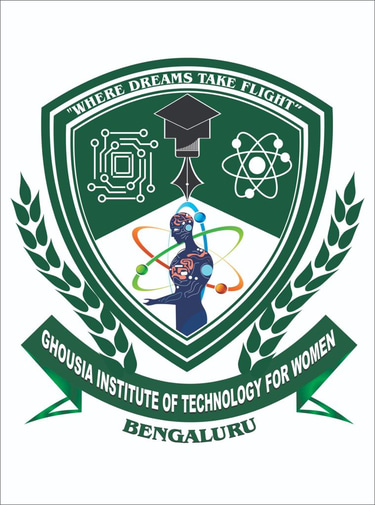GHOUSIA INSTITUTE OF TECHNOLOGY FOR WOMEN
(A Unit of Al-Ameen Movement)
DRC Post Dairy Circle Hosur Road Bengaluru Karnataka-560029 India
Affiliated to Visvesvaraya Technological University, Recognized by Government of Karnataka & A.I.C.T.E., New Delhi
GHOUSIA INSTITUTE OF TECHNOLOGY FOR WOMEN
DRC Post Dairy Circle Hosur Road Bengaluru Karnataka-560029 India
AFFILIATED TO VISVESVARAYA TECHNOLOGICAL UNIVERSITY
Recognized by Government of Karnataka & A.I.C.T.E., New Delhi
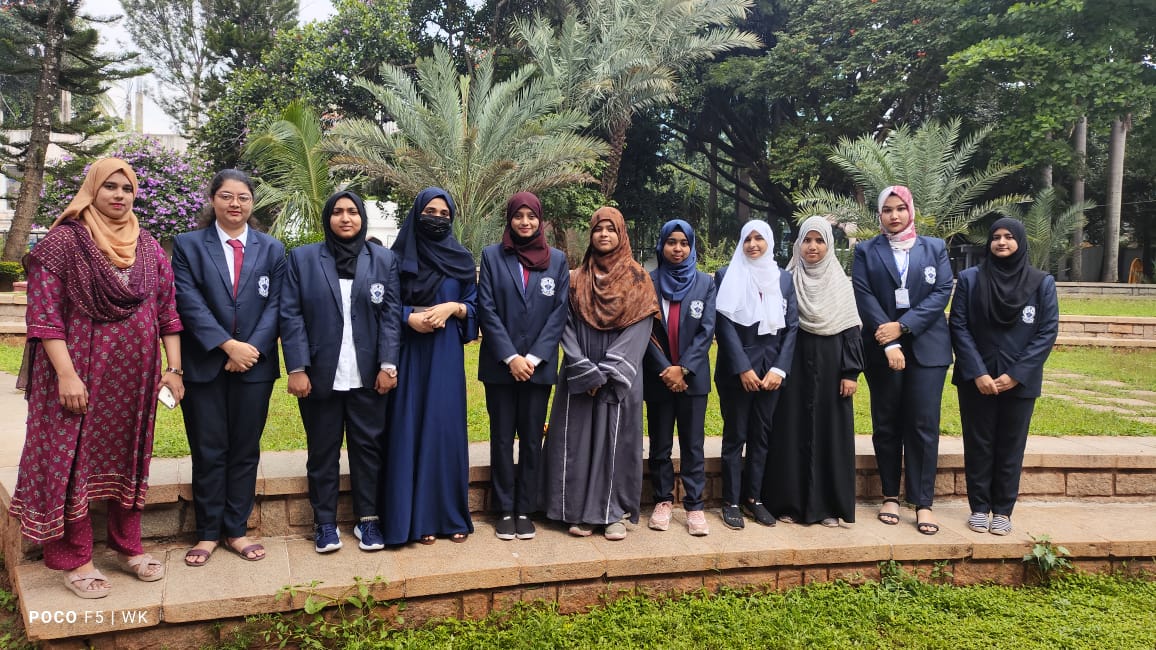

The Students Innovation Council (SIC) in an engineering college plays a vital role in fostering creativity, problem-solving, and entrepreneurial skills among students. It serves as a platform for students to explore new ideas, collaborate on innovative projects, and turn theoretical knowledge into practical applications. By organizing workshops, hackathons, and competitions, the council encourages students to engage in interdisciplinary learning and stay updated with the latest technological advancements. Additionally, the SIC promotes a culture of research and development, preparing students to address real-world challenges and enhancing their employability by nurturing leadership and teamwork skills.
Mrs. Ruksana Banu, Convener-SIC, Afiya Zuha, Ayesha Qurathul Ain, Bushra Fatima, Farheen Firdous, Rabiya Uzma SA, Sara Salith, Umme Kaunain Hurera, Umme Kulsum T, Wajeeha Khan & Zainab Taj, Student Members-SIC (clockwise).
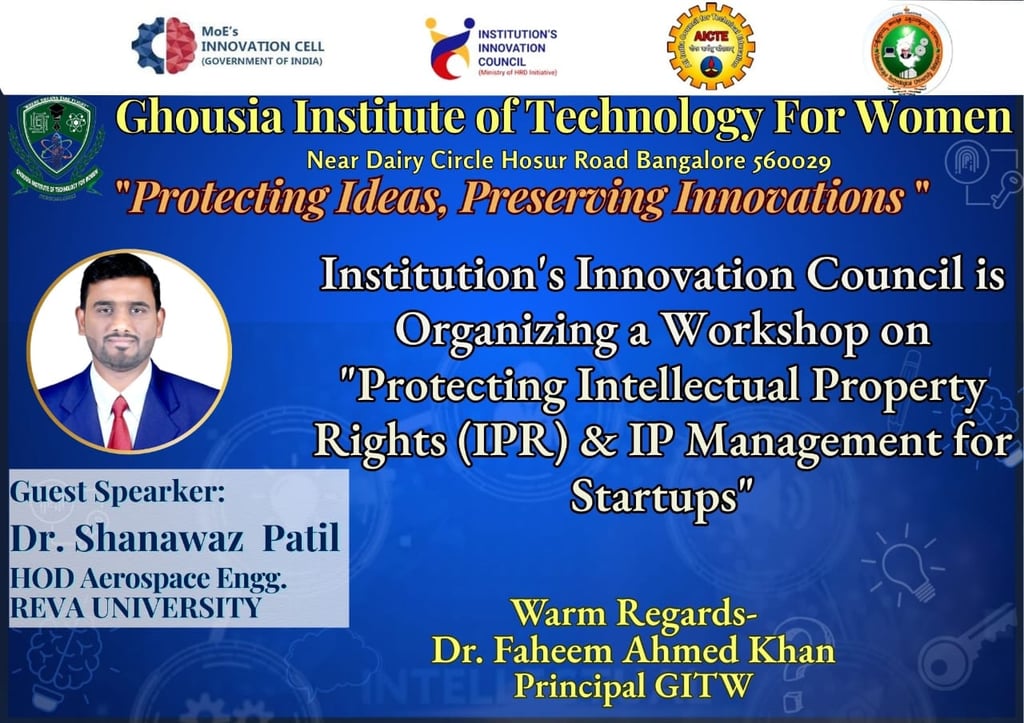

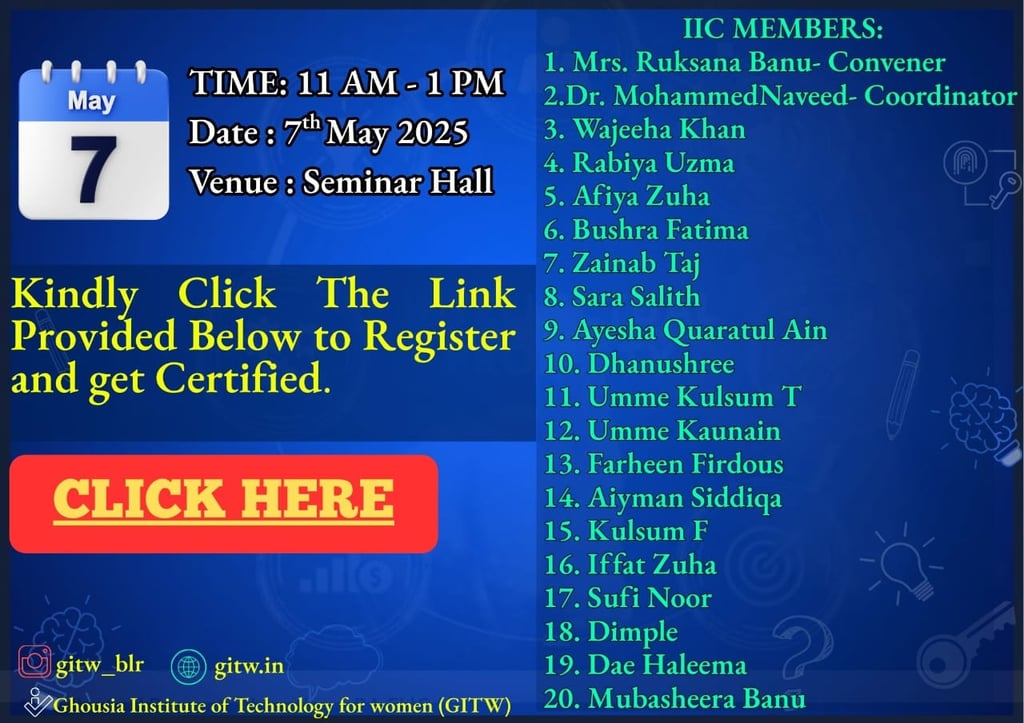

In today’s innovation-driven economy, intellectual property (IP) plays a pivotal role in fostering creativity, entrepreneurship, and economic growth. For women engineering colleges, where young female minds are being nurtured to become future technologists, inventors, and entrepreneurs, understanding and protecting intellectual property rights (IPR) is not only essential but empowering. Startups emerging from such institutions—whether founded by students, faculty, or incubated within the campus ecosystem—face unique challenges and opportunities. The integration of IPR awareness and IP management practices can significantly enhance the impact, sustainability, and competitiveness of these startups.
First and foremost, intellectual property rights encourage innovation by providing legal protection for inventions, designs, software, and creative works. In a women engineering college, students often engage in capstone projects, hackathons, research papers, and prototype development. Many of these works have the potential for commercialization. However, without a clear understanding of IP laws, these innovative outputs may be unprotected and vulnerable to exploitation. Educating students about the types of IP—patents, copyrights, trademarks, trade secrets—and the process of securing them ensures that their innovations are safeguarded from unauthorized use or infringement.
Startups, particularly in the tech sector, rely heavily on their intellectual assets. A startup's core value often resides in its unique algorithms, product designs, branding, or business processes. In a women-centric engineering environment, fostering a culture that values IP empowers aspiring entrepreneurs to build businesses with confidence, knowing their ideas and innovations are legally protected. Furthermore, securing IP early in the development process adds credibility to startups, making them more attractive to investors, incubators, and collaborators. Investors view strong IP portfolios as a sign of innovation, market potential, and risk mitigation, all of which are crucial for startup success.
The role of IP management becomes even more significant when considering the academic and collaborative nature of engineering education. Projects often involve multiple contributors—students, faculty, and sometimes industry partners. Establishing clear IP policies within the institution helps delineate ownership, usage rights, and revenue sharing, thus avoiding conflicts and encouraging open collaboration. For women engineering colleges, such frameworks not only protect innovations but also promote a professional environment where women feel secure and respected in their creative contributions.
Another dimension to consider is the gender gap in entrepreneurship and patent filings. Studies have shown that women are underrepresented in both domains. By integrating IP education into the curriculum and startup ecosystem, women engineering colleges can directly address this disparity. Workshops, seminars, mentorship programs, and IP cells can motivate women students to take the lead in innovation and entrepreneurship. By demystifying the IP filing process and providing institutional support, colleges can encourage more women to file patents, trademarks, and copyrights for their work.
Furthermore, IP awareness enhances ethical engineering practices. Students who understand the value of originality and legal ownership are less likely to engage in plagiarism or idea theft. They are more likely to respect others’ work and be diligent in citing sources and acknowledging contributions. This inculcates integrity and professionalism—qualities essential for both academic success and industry readiness.From a broader perspective, protecting intellectual property contributes to national development. In India, where the government promotes initiatives like “Startup India” and “Make in India,” a robust IP framework is essential for scaling indigenous innovations.
Women engineering colleges, by actively participating in this movement, can play a vital role in shaping a more inclusive and innovative economy. Encouraging women-led startups with strong IP strategies not only boosts local innovation but also contributes to global competitiveness.Moreover, establishing dedicated IP cells or Technology Business Incubators (TBIs) within women engineering colleges can serve as a structured platform for identifying, protecting, and commercializing inventions. These cells can assist in patent searches, drafting applications, liaising with IP attorneys, and filing through platforms like the Indian Patent Office. They can also facilitate industry linkages and guide startups through licensing and IP monetization processes.A key advantage of promoting IP management in a women-centric environment is the creation of role models.
When young women see their peers successfully launching startups, filing patents, or licensing their innovations, it builds aspiration and belief. This multiplier effect can lead to a culture of innovation, collaboration, and self-reliance across the institution.It is also worth noting that many IP tools and services are now accessible online, making it easier than ever for students and faculty to engage with the IP system. Free databases for patent searches, e-filing portals, and government schemes offering fee reductions for startups and educational institutions create an enabling environment. Colleges should actively promote the use of such resources, ensuring that students are equipped with the knowledge and tools to protect their innovations.
In conclusion, protecting intellectual property rights and managing IP effectively is of paramount importance for startups in women engineering colleges. It safeguards innovation, enhances credibility, attracts investment, and fosters a professional and ethical culture. Most importantly, it empowers women to take charge of their ideas and transform them into impactful ventures. By embedding IPR awareness into academic and entrepreneurial frameworks, women engineering colleges can become powerful engines of inclusive innovation, driving both personal empowerment and national progress.
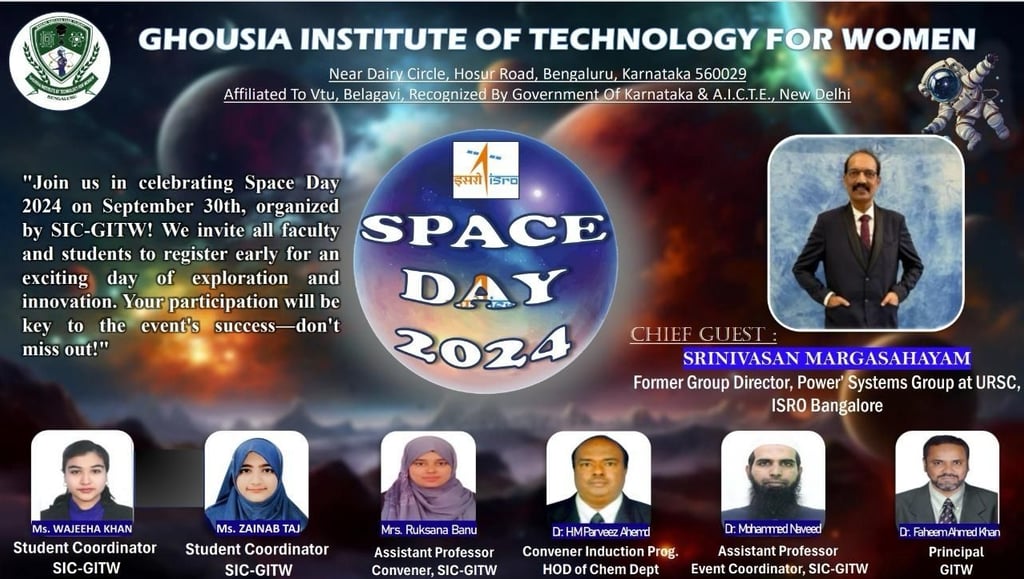

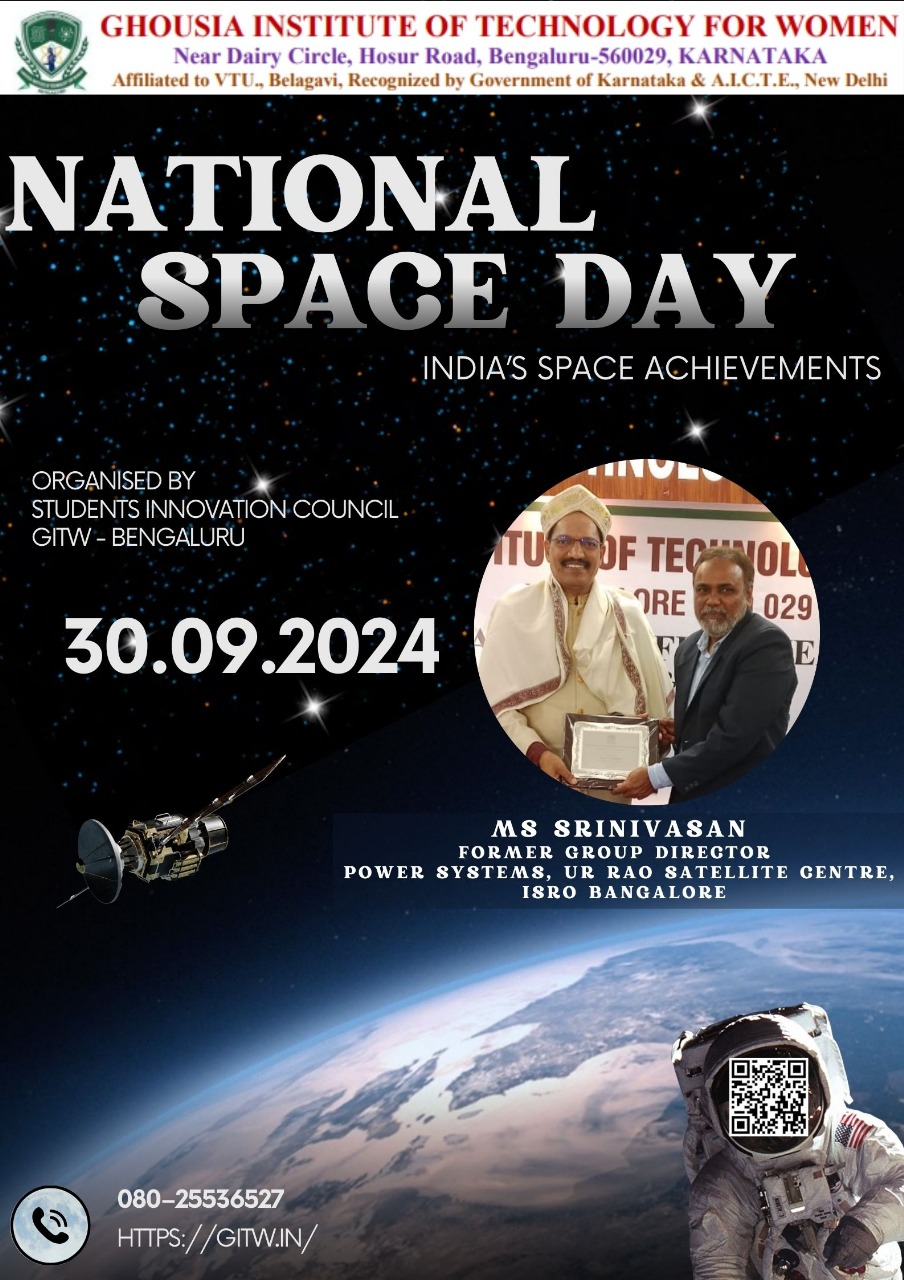

IMPORTANCE OF SPACE DAY CELEBRATION
Space Day celebration in India holds immense significance as it highlights the nation's remarkable achievements in space exploration and inspires future generations to pursue careers in science and technology. India, through the Indian Space Research Organisation (ISRO), has made groundbreaking advancements, such as the Chandrayaan and Mangalyaan missions, positioning itself as a global leader in space technology. Celebrating Space Day fosters awareness about these accomplishments and encourages scientific curiosity among students and researchers. It also emphasizes the role of space technology in everyday life, from communication and navigation to disaster management and environmental monitoring. Furthermore, Space Day serves as a platform to honor the contributions of Indian scientists and engineers while reinforcing the country's commitment to innovation and self-reliance in space exploration. By promoting space education and collaboration, this celebration contributes to India's vision of becoming a major player in the global space industry.
SIGNIFICANCE OF CHANDRAYAAN-III
Chandrayaan-III holds immense significance as it marks India's successful attempt to land on the Moon, further strengthening the nation’s position in global space exploration. Launched by the Indian Space Research Organisation (ISRO) on July 14, 2023, Chandrayaan-III achieved a historic milestone by making a soft landing near the Moon’s south pole on August 23, 2023. This mission was a follow-up to Chandrayaan-II, aiming to demonstrate India’s capability to execute a precise and safe lunar landing. The success of Chandrayaan-III showcased India's technological advancements in space science, particularly in autonomous landing and rover mobility. The Vikram lander and Pragyan rover played a crucial role in conducting scientific experiments, analyzing lunar soil, and studying the Moon’s surface conditions. This mission not only contributed valuable data for future lunar exploration but also reinforced India's reputation as a cost-effective and efficient spacefaring nation. Furthermore, Chandrayaan-III inspired scientific curiosity and innovation among students and researchers, highlighting the importance of space exploration for future advancements in technology and planetary studies. It also paved the way for deeper international collaborations and India's participation in global space missions. The success of Chandrayaan-III signifies a giant leap for India’s space program, bringing the nation closer to achieving its long-term goals in interplanetary exploration.
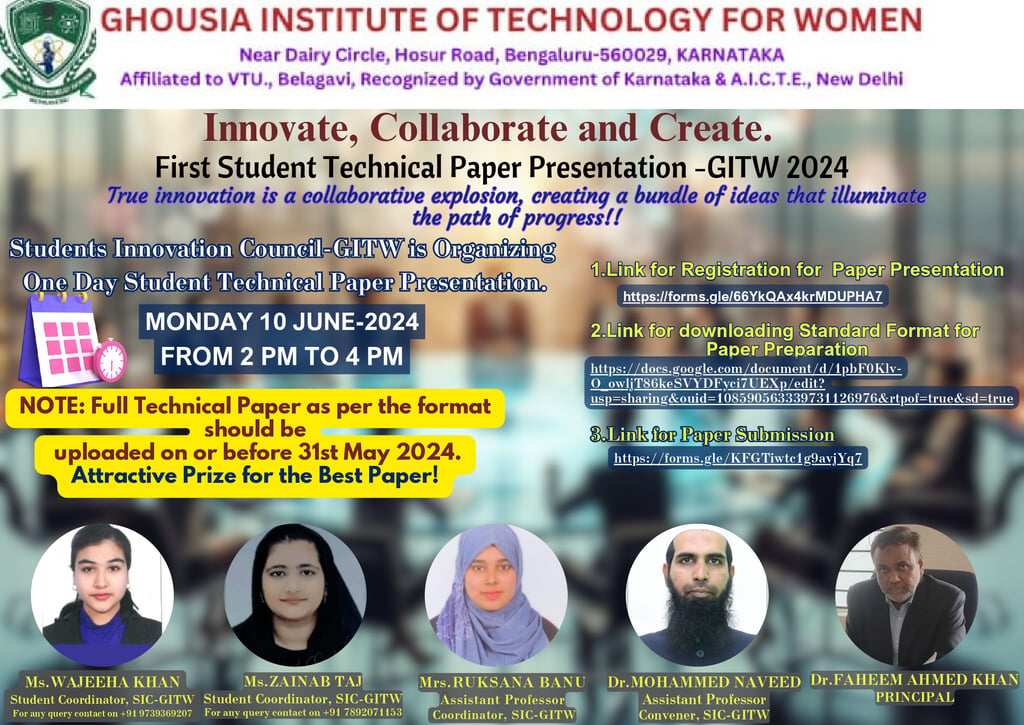

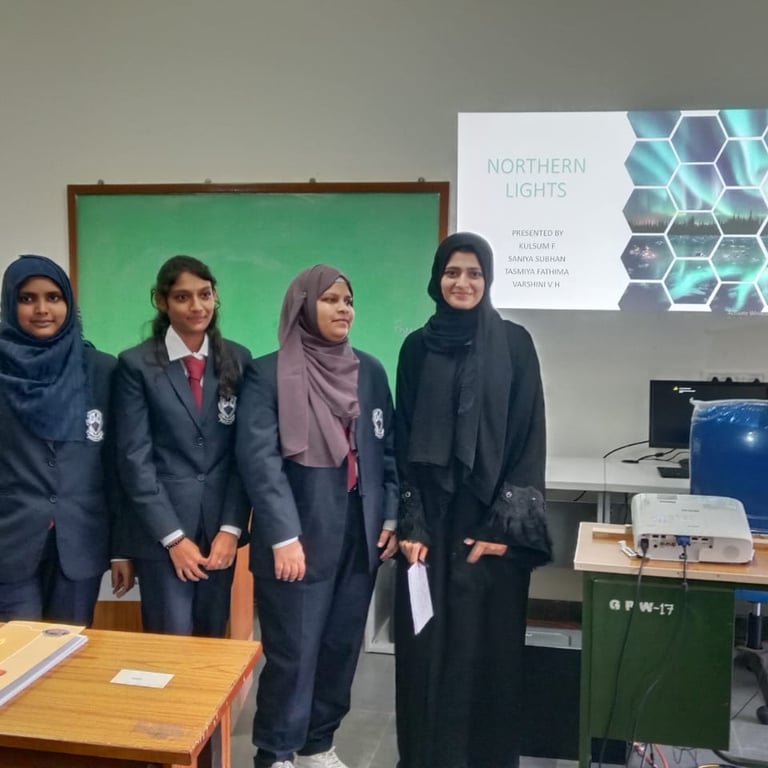
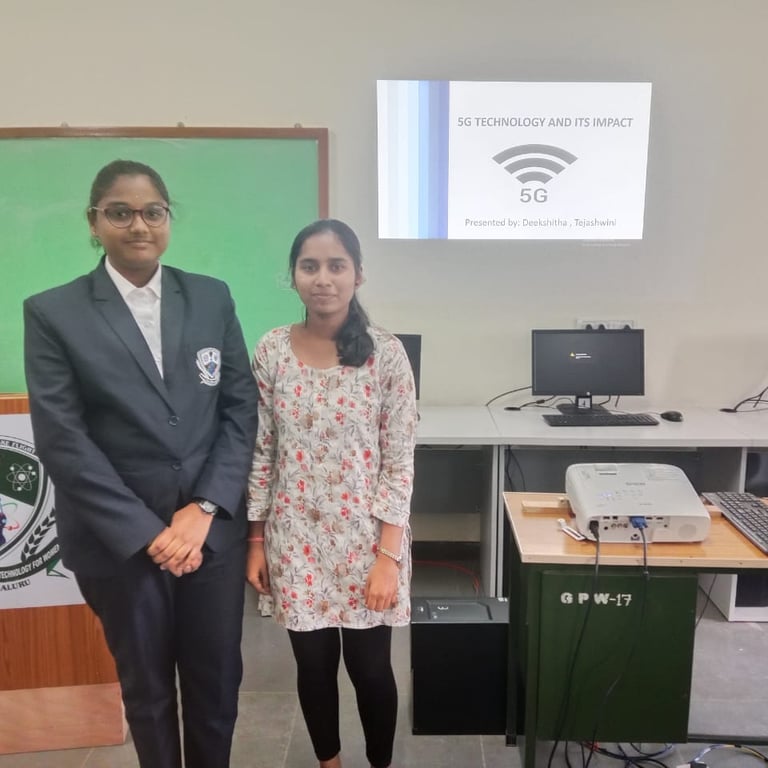
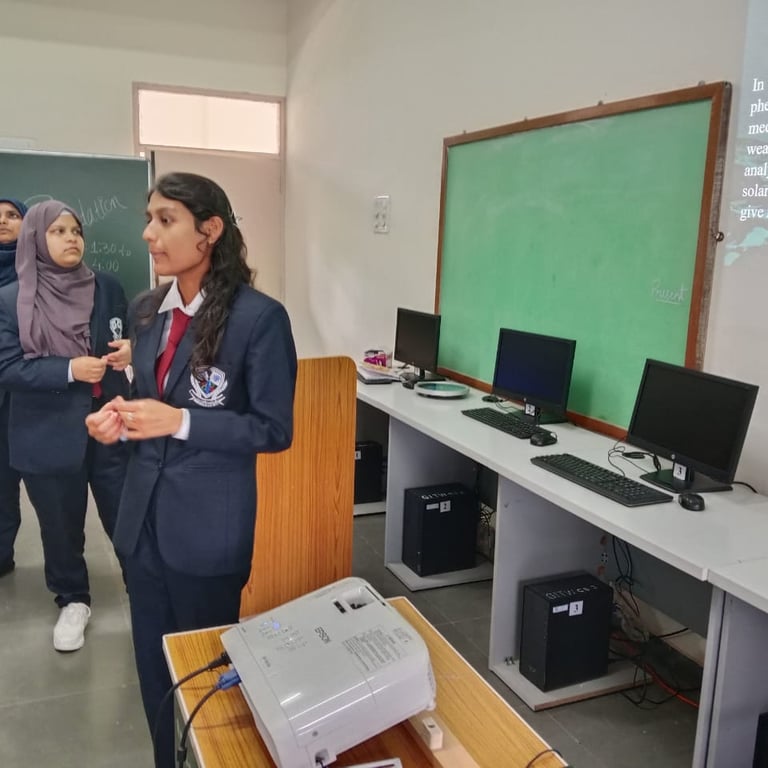
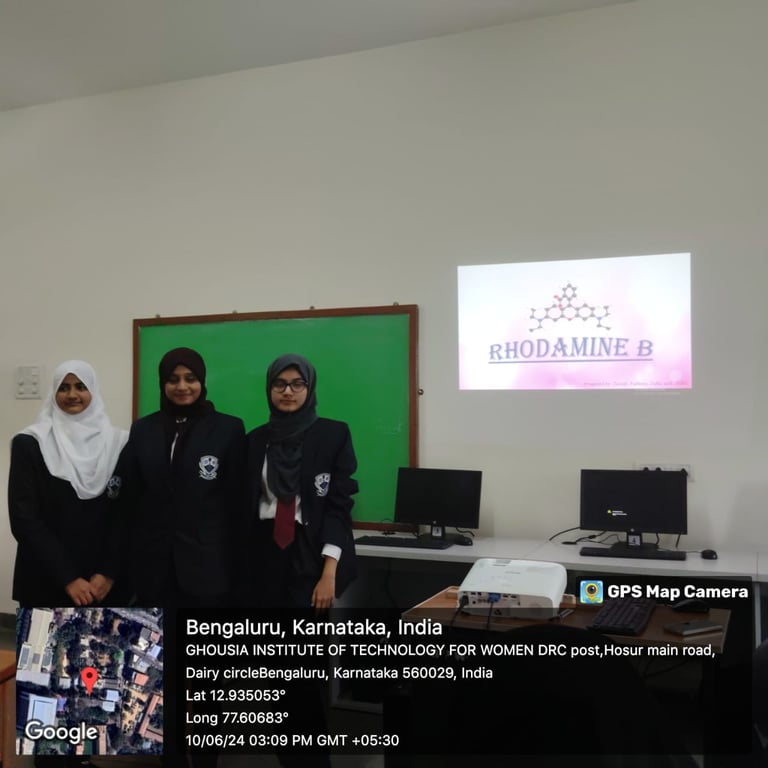
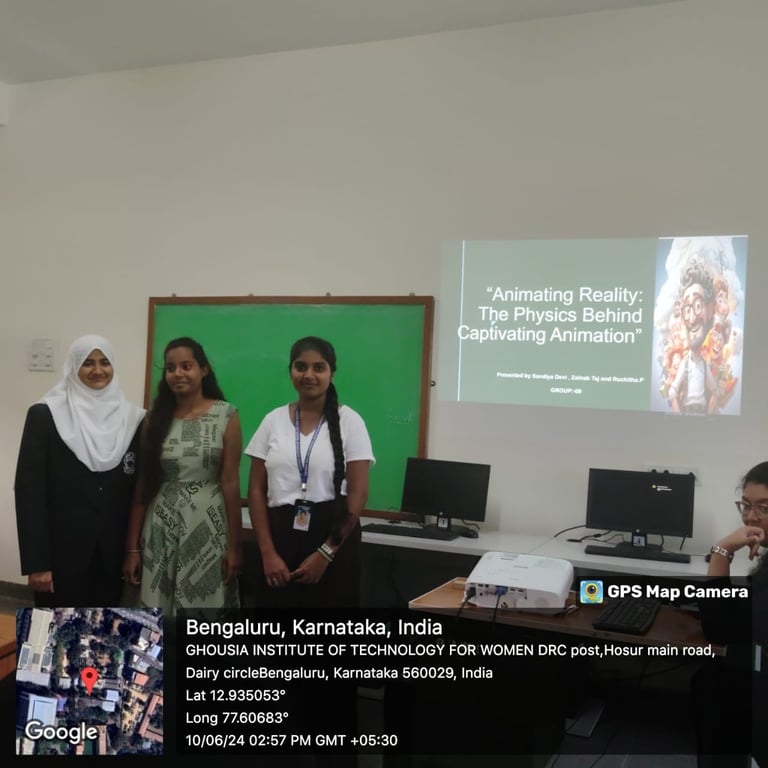
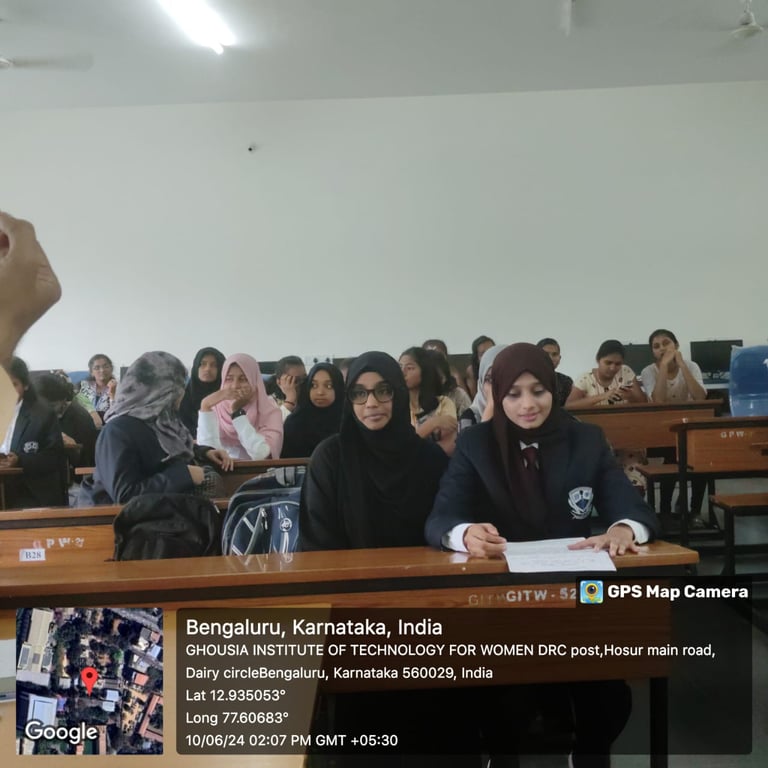
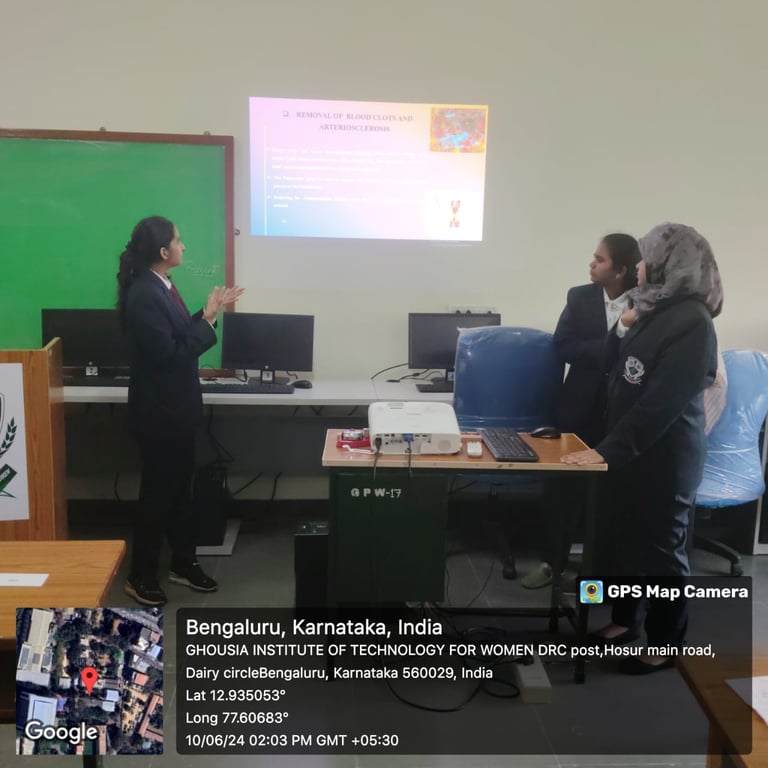
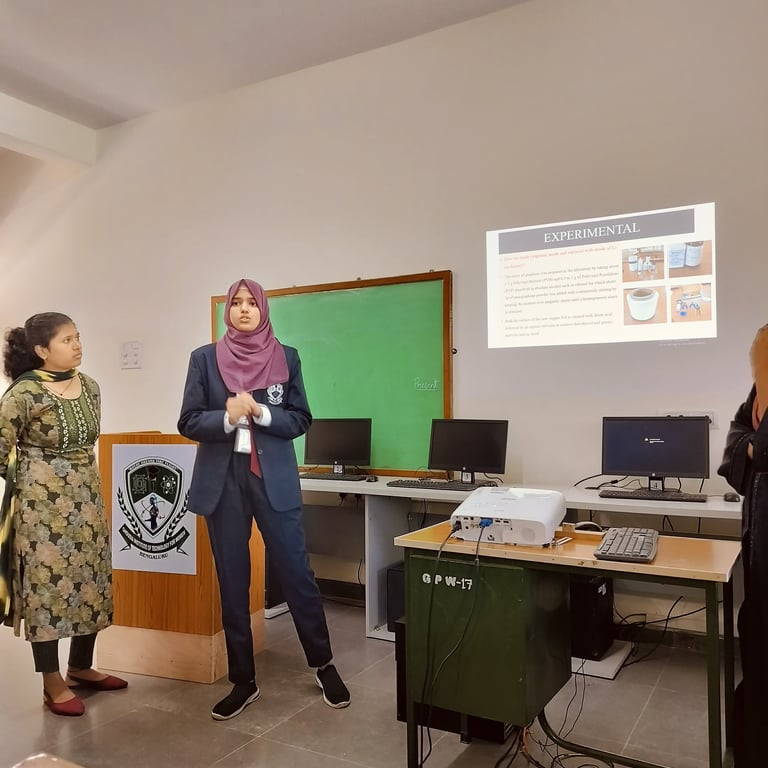
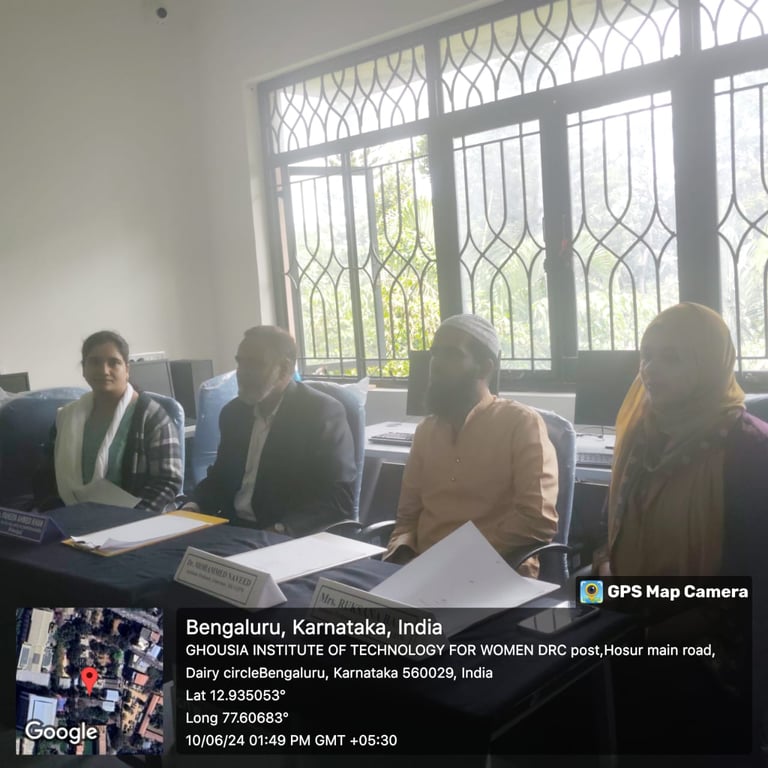
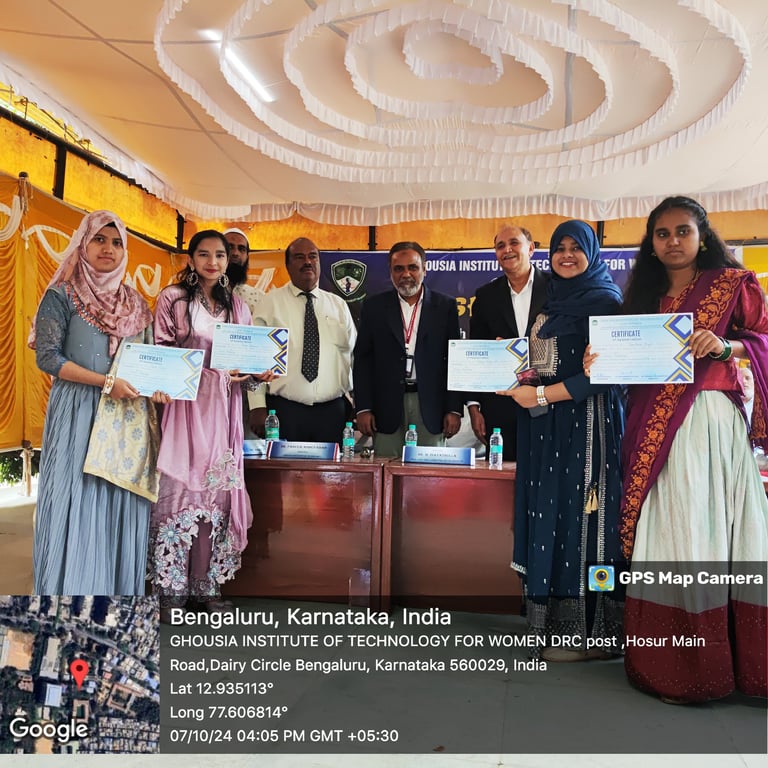
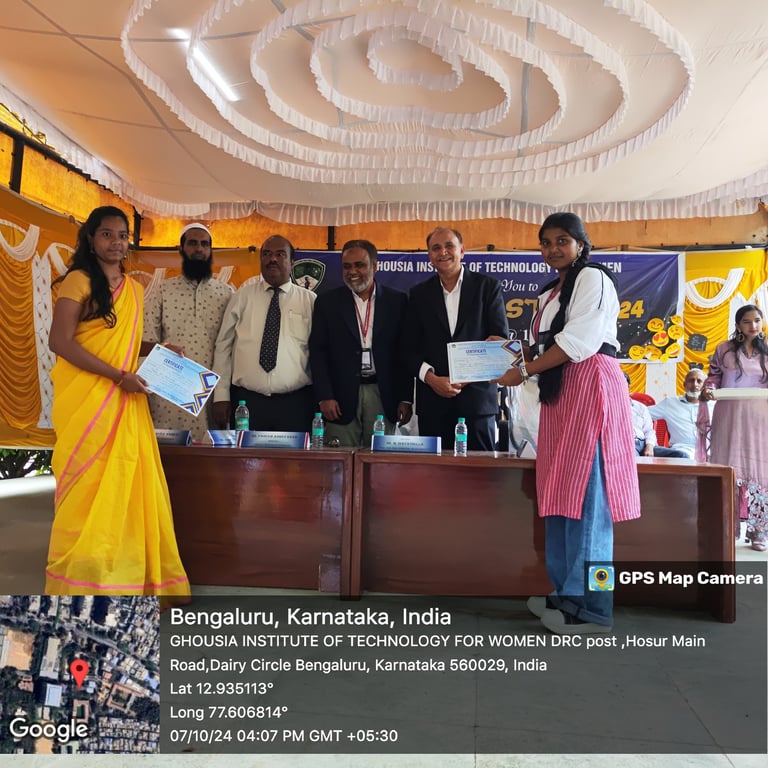
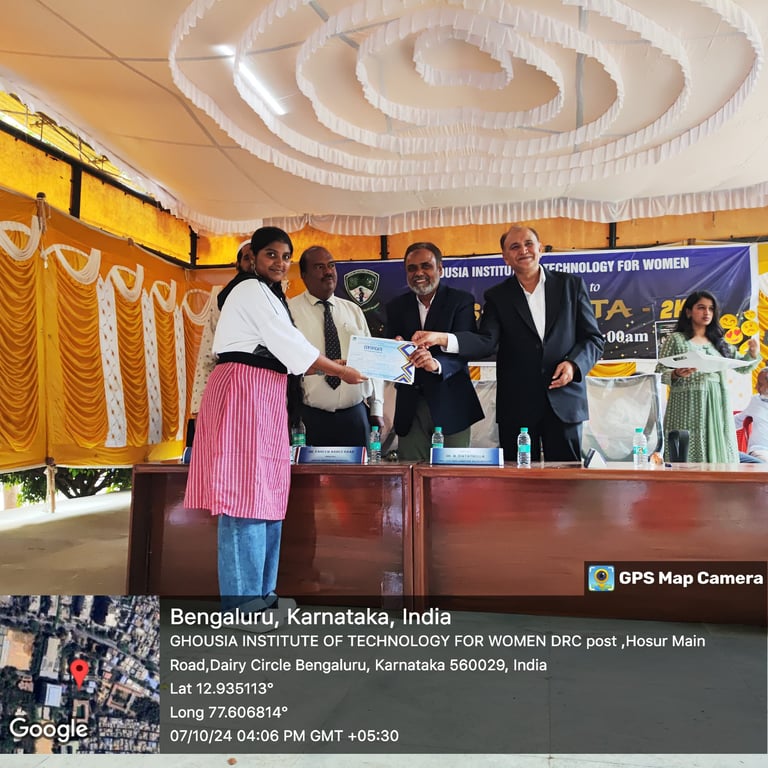
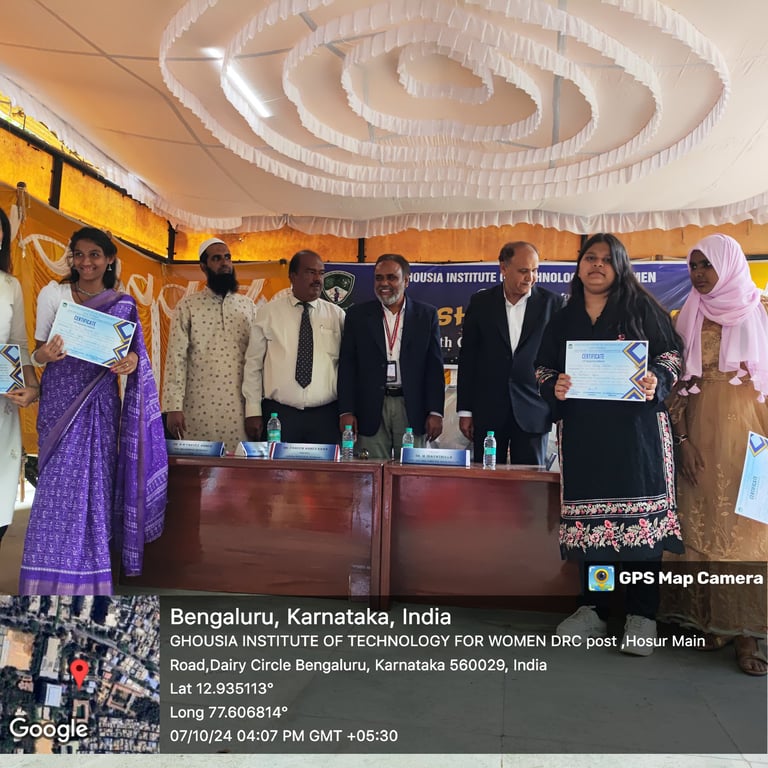
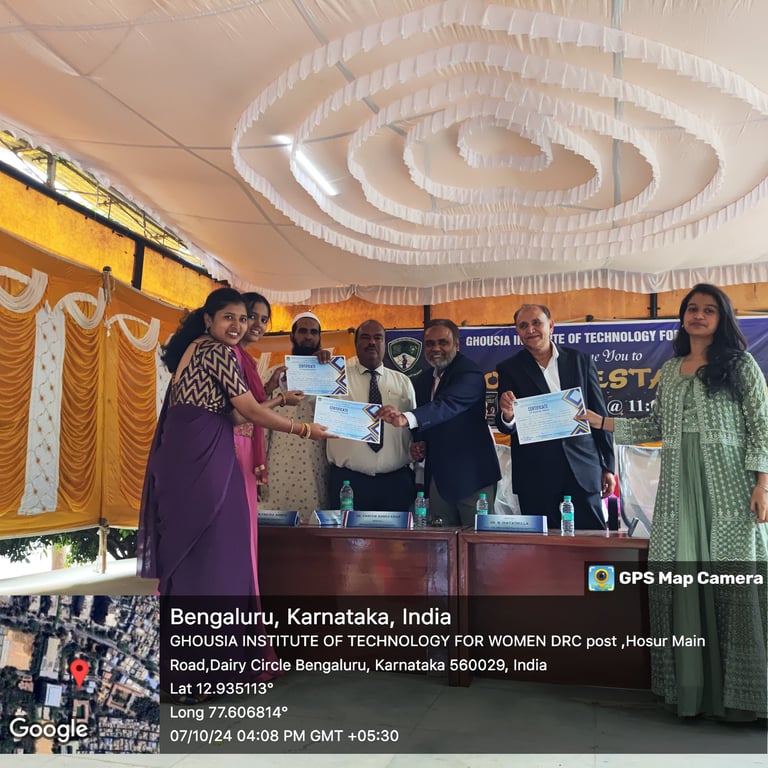
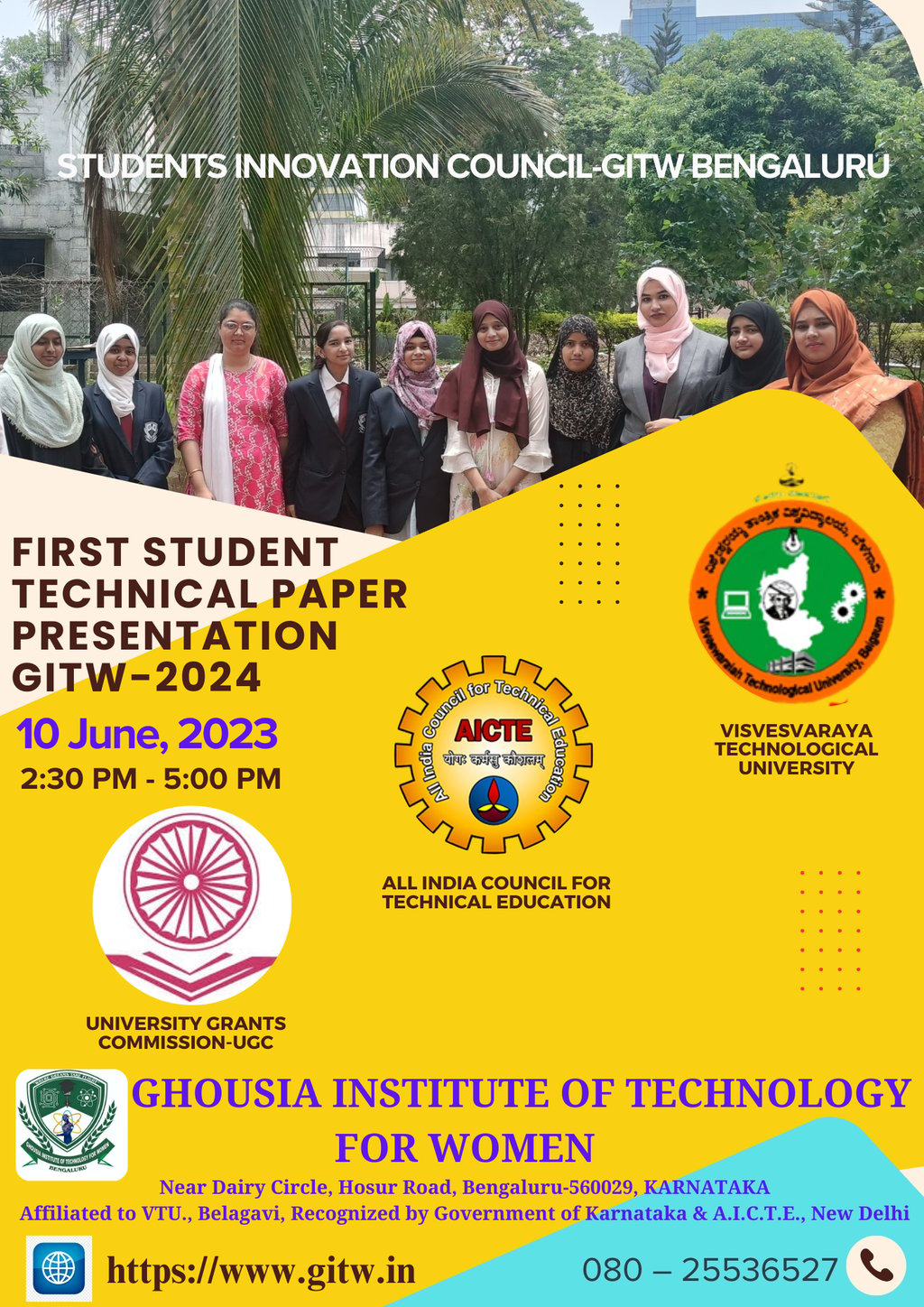

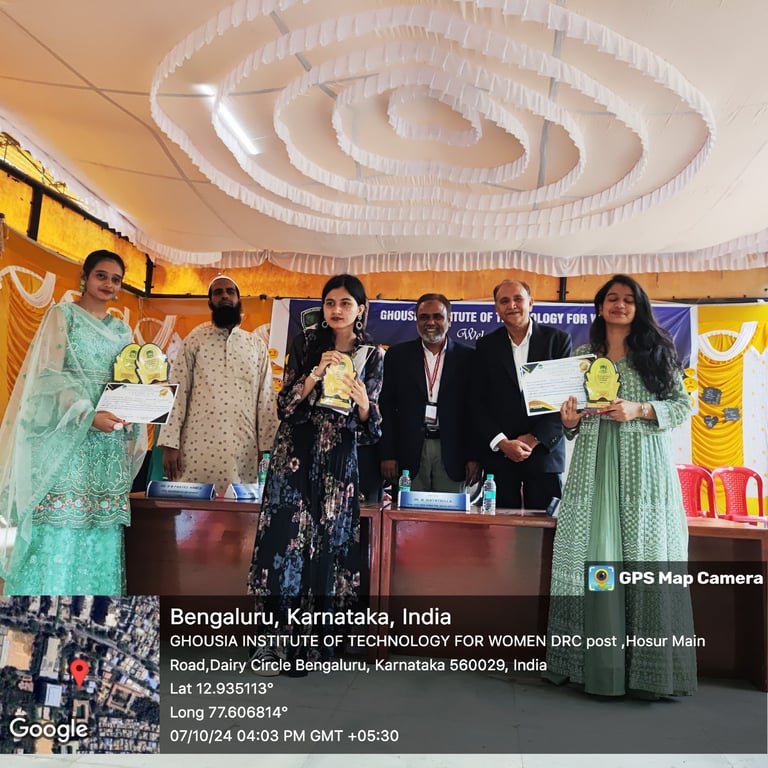

First Prize:
Ms. Farheen Firdose-1WT23CS020
Ms.N Zoya - 1WT23CS030
Ms.Sidra Kaleem -1WT23CS042
Ms.Zainab Taj - 1WT23CS058
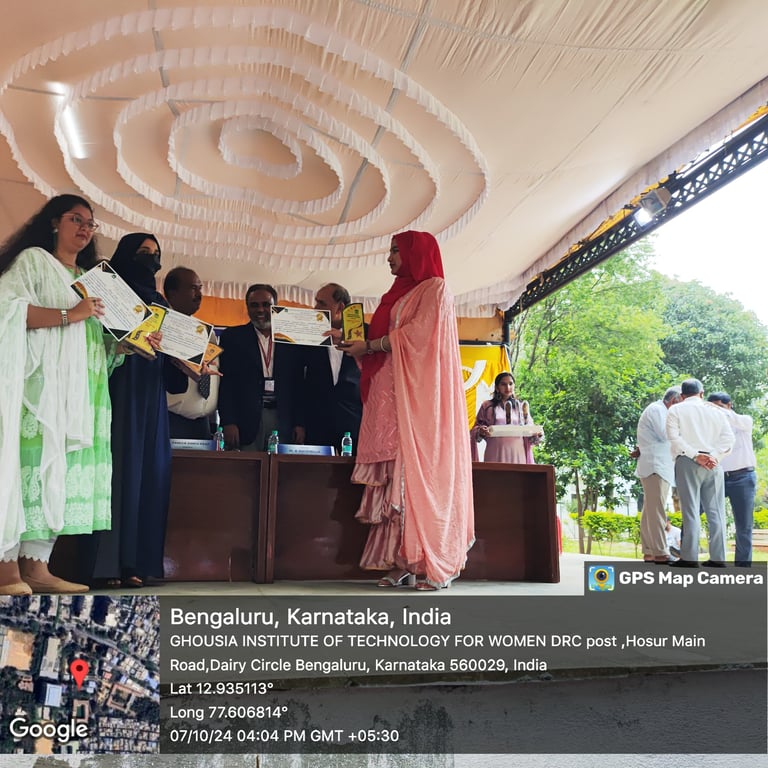

Second Prize:
Ms. Afiya Zuha-1WT23CS001
Ms. Bushra Fatima - 1WT23CS014
Ms.Wajeeha Khan -1WT23CS056
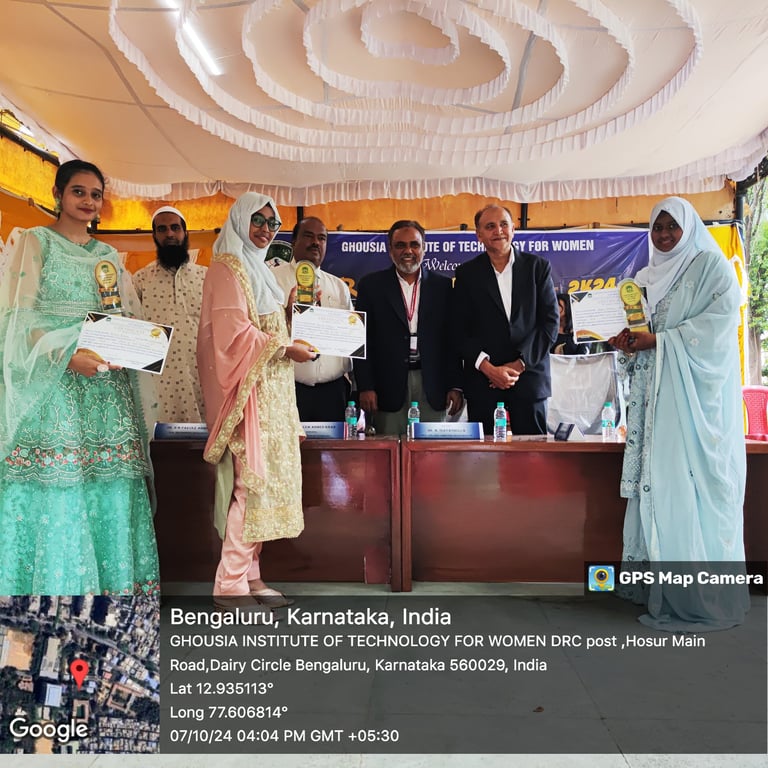

Third Prize:
Ms. Ayman Siddiqa-1WT23CS003
Ms. Asfiya Fathima - 1WT23CS009
Ms.Farheen Firdose -1WT23CS020
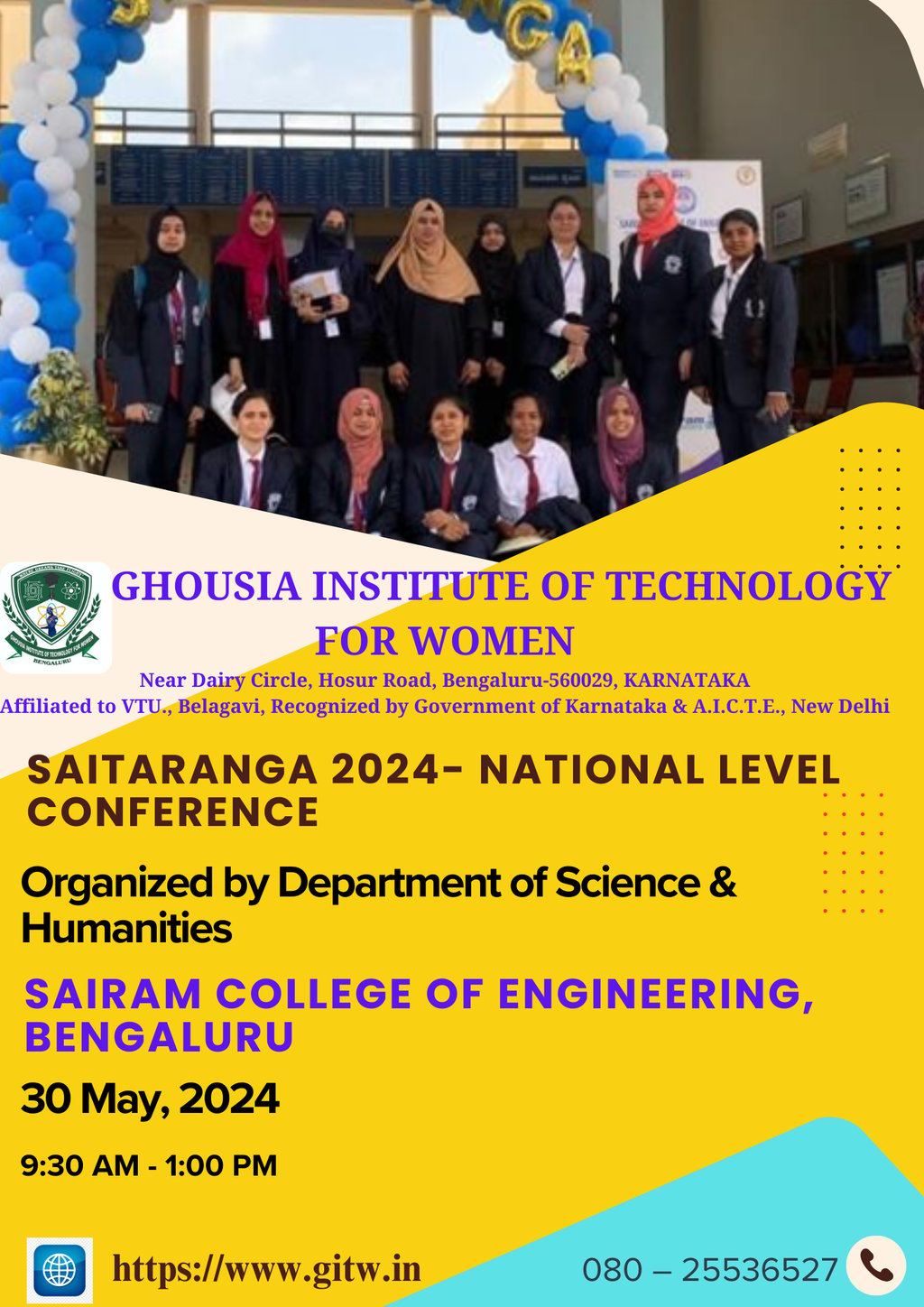

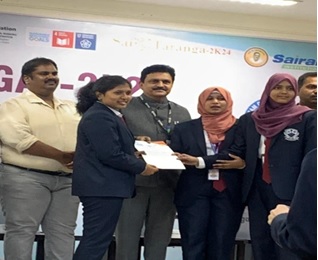

First Prize in Technical Paper
Ms. Bindu D Gudlar -1WT23CS013
Ms. Simran - 1WT23CS043
Ms.N Zoya - 1WT23CS030
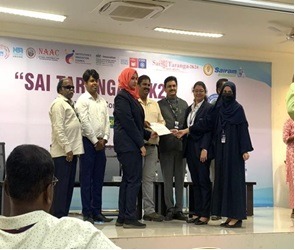

First Prize in English
Ms. Afiya Zuha-1WT23CS001
Ms. Bushra Fatima - 1WT23CS014
Ms.Wajeeha Khan -1WT23CS056
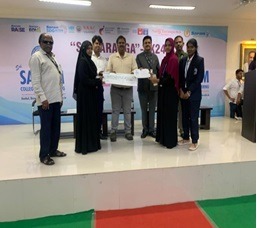

Third Prize in Technical Paper
Ms. Ruchitha P-1WT23CS036
Ms. Sana Munir - 1WT23CS037
Ms.Zainab Taj -1WT23CS058
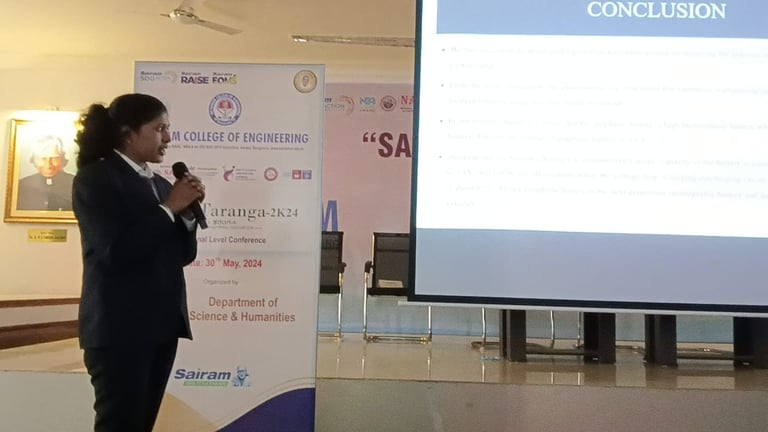
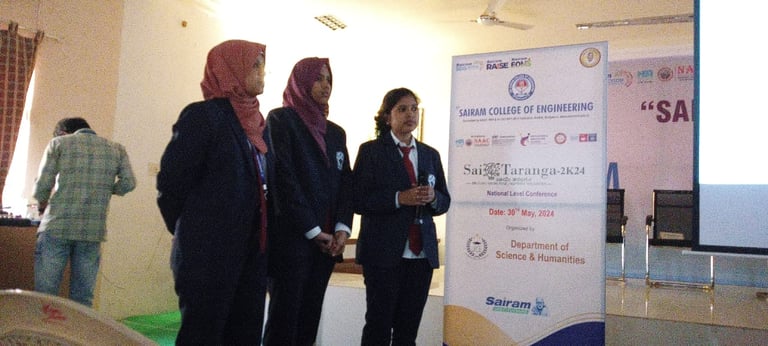
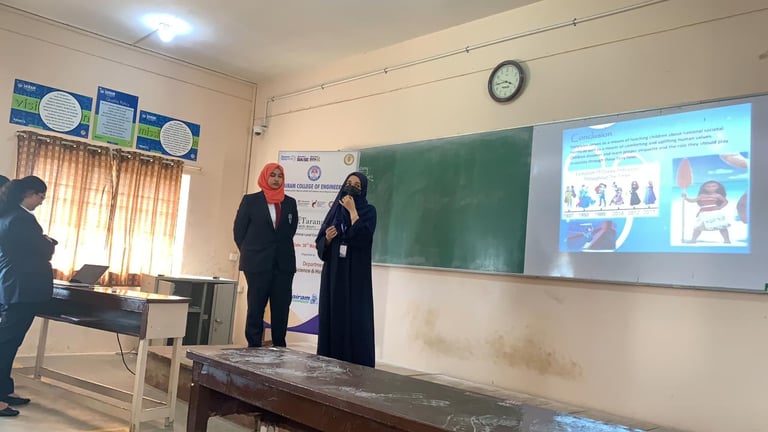
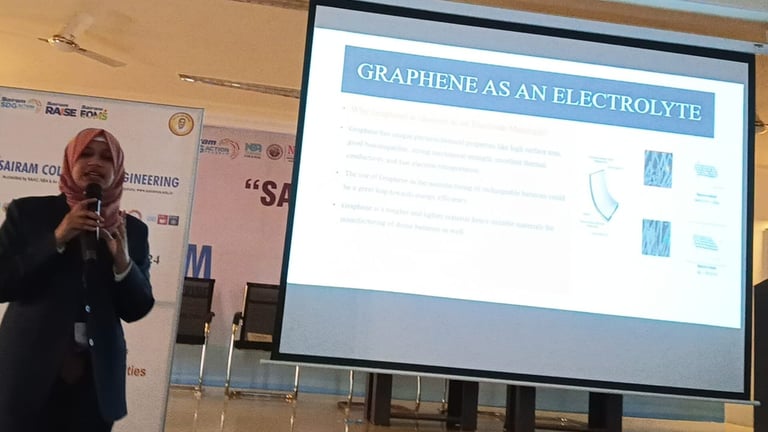

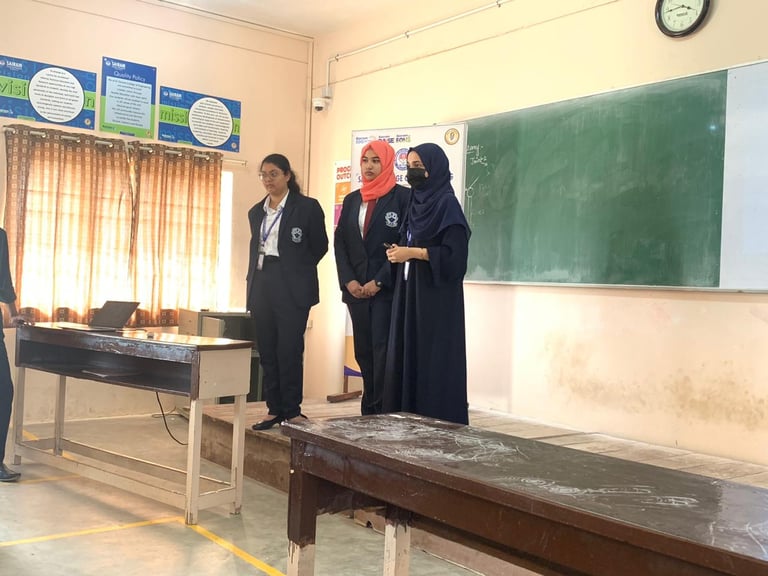
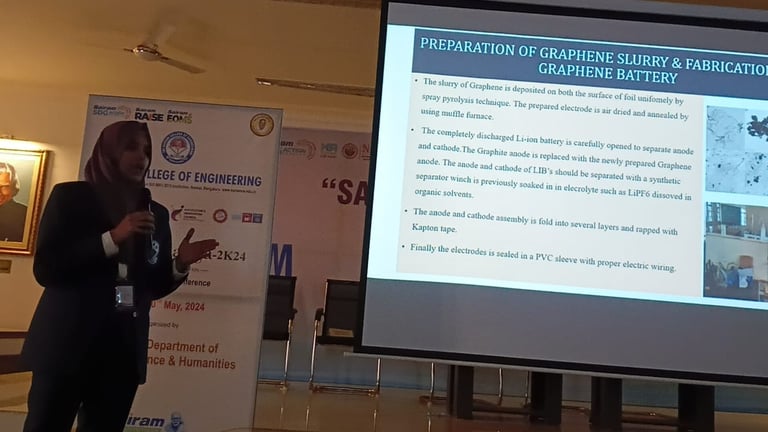
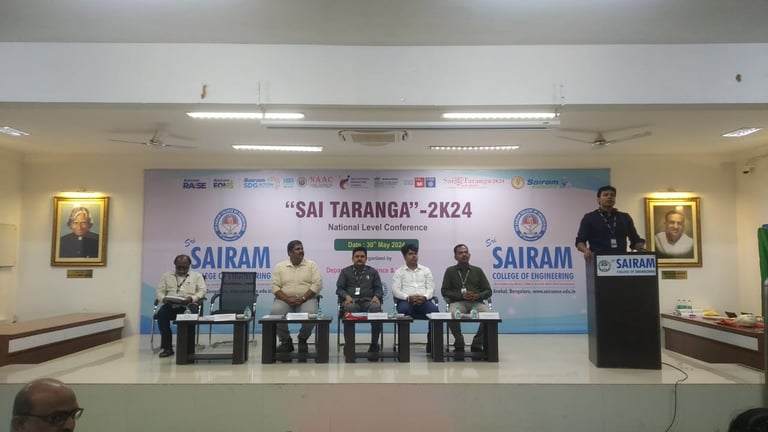
























Women Empowerment
Shaping futures for women in technological education.
Copyright © 2024 The President and Fellows of GITW
ghousia institute of technology for women
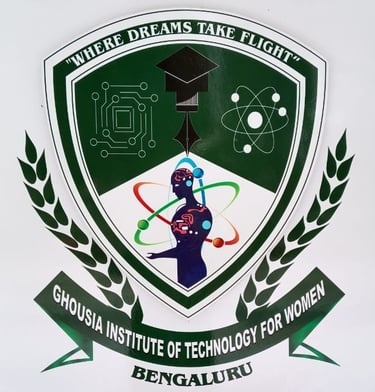

"Educating a woman in technology is like planting seeds for a brighter future she will not only empower herself but also nurture a generation of innovation."
9986343109 / 9845908691
080 – 25536527


Connect with us on our social media channels


principal@gitw.in
Design & Maintained By : Dr.NAVEED
